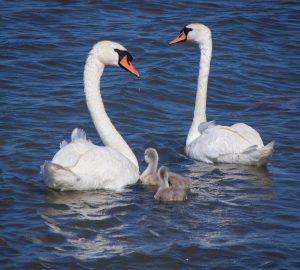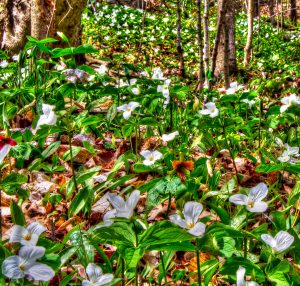What is “Conscious Evolution” and how can this affect how you live your life? Barbara Marx Hubbard, one of the founders of this movement, has defined it as follows: “Conscious evolution is the evolution of evolution, from unconscious to conscious choice. While consciousness has been evolving for billions of years, conscious evolution is new. It is part of the trajectory of human evolution, the canvas of choice before us now as we recognize that we have come to possess the powers that we used to attribute to the gods.” For the full explanation, visit her Foundation for Conscious Evolution site. Although, underlying these theories are the potential for dire consequences for mankind, all of these thought leaders are directing us to work together towards a more glorious future. I was particularly inspired by her statement: “…We can and are actually moving beyond the creature human condition toward a new species, a universal humanity, capable of coevolving with nature.”
For many people, the term “evolution” evokes thoughts of Charles Darwin and his famous work: “On the Origin of Species” which explains how all species on Earth have physically evolved from the very beginnings of life through natural selection and random mutations. This theory, although initially rejected by many scientists and most certainly by the church in the mid 1800’s, has become a foundational work in the fields of natural history and biology and serves as a widely-accepted explanation for the origins of man.
However, the process of Natural Selection and, in particular, the concepts around “Survival of the Fittest” whereby those with the most favourable genetic traits will win the reproduction war is now under some debate by scientists and modern day philosophers, especially as it applies to the current state of sentient man.
Consider this quotation from Andrew Cohen, another thought leader who is expanding our understanding of Conscious Evolution through his writing and teaching and his organization Enlightennext:
“… I believe we have reached a time in history when God, which I would describe as the energy and intelligence that initiated the creative process, is now completely dependent upon us—upon sentient life forms that have evolved to the point where they are blessed with the extraordinary gifts of complex cognition, self-awareness, and freedom of choice. At this critical juncture, our own future and the future of our planet will be determined by the conscious choices that we human beings make, rather than by the whim of a higher power or according to some predestined plan.” To read the full article, go to Cohen’s site.
In that same article, Andrew Cohen goes on to explain the ultimate purpose in humanity’s spiritual development: “…to liberate the miraculous power of human choice from being unconsciously trapped in a cultural epidemic of narcissism, materialism, and existential apathy. Our moral, spiritual, and cultural evolution—if not our very survival—really do depend on it.”
Dr. Bruce Lipton is another pioneer in this field of Conscious Evolution. With a PhD in cell biology, he is a renowned author and speaker on the topic of “Uncovering the Biology of Belief”. I’ve seen him speak at a Hayhouse event and he is both informative and inspirational. This excerpt from his site bio referencing his breakthrough work in the field of epigenetics, proving that factors other than genes can affect cell behaviour shows how he has stepped outside of cell biology to extrapolate his knowledge to the evolution of human consciousness – “…Dr. Lipton’s novel scientific approach transformed his personal life as well. His deepened understanding of cell biology highlighted the mechanisms by which the mind controls bodily functions, and implied the existence of an immortal spirit.”
I’m again reminded of a work of fiction that ignited the imagination of many on this topic in the 90’s called “The Celestine Prophecy”. The author, James Redfield, used this spiritual adventure to share his views on the evolution of consciousness through the Nine Insights that the characters discover in the story.
 I don’t think it’s relevant to debate the specific insights or progressions as Redfield saw them in order to gain some insight into these ideas. Redfield’s Celestine books raised awareness for mysterious coincidences, human prayer-energy, channelling thoughts into a collective, dynamic force, and evolving towards a spiritual culture on Earth.
I don’t think it’s relevant to debate the specific insights or progressions as Redfield saw them in order to gain some insight into these ideas. Redfield’s Celestine books raised awareness for mysterious coincidences, human prayer-energy, channelling thoughts into a collective, dynamic force, and evolving towards a spiritual culture on Earth.
Conscious Evolution is a broad topic which touches on many spiritual and religious beliefs which I will continue to explore in future posts. One of the underlying messages that I find valuable with all of this work is that we are powerful, connected, spiritual beings with the ability to transform ourselves and our world.
Sometimes when I question why I write this material, manage this blog, share images and video that I believe to be beautiful, I remind myself that a continued focus on sending out positive, loving thoughts into the world through art, writing, or whatever avenues are available or suitable to each of us, is part of contributing to our collective consciousness, and driving us forward in our personal and shared evolution.
This follows on the teachings of two well-respected thought leaders today – Deepak Chopra and Eckhart Tolle. In my review of Tolle’s “Finding your Life’s Purpose” (blog post), one of the questions asked was: How can our species survive unless there’s a change in our collective spirit, our consciousness? The conclusion is that the only way that we can affect such as a transformation is by working on our own individual consciousness.
To emphasize this point, I will leave you with Deepak Chopra’s words: “… the only way to transform the world is to transform yourself..”

 I don’t think it’s relevant to debate the specific insights or progressions as Redfield saw them in order to gain some insight into these ideas. Redfield’s Celestine books raised awareness for mysterious coincidences, human prayer-energy, channelling thoughts into a collective, dynamic force, and evolving towards a spiritual culture on Earth.
I don’t think it’s relevant to debate the specific insights or progressions as Redfield saw them in order to gain some insight into these ideas. Redfield’s Celestine books raised awareness for mysterious coincidences, human prayer-energy, channelling thoughts into a collective, dynamic force, and evolving towards a spiritual culture on Earth.